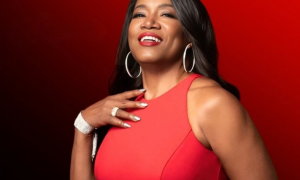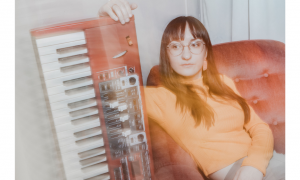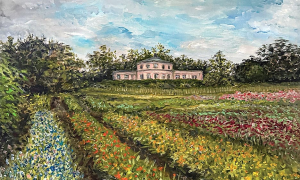
It's not often that you see a two-week engagement at New York City's Blue Note jazz club. But when Chick Corea assembles a new project called Further Explorations of Bill Evans, which would explore the more obscure side of the piano legend's work as well as new Corea compositions inspired by Evans, two weeks are certainly merited. Also featuring former Evans sidemen Eddie Gomez (bass) and Paul Motian (drums), the lineup was as legit as they come.
The 24-set run came to an end with the 10:30 slot on Sunday, May 16. The two weeks featured guest appearances by Evans alumni Hubert Laws and John Scofield, as well as other unannounced guests, but the draw was the fact that Corea was doing a rare club gig instead of the usual concert hall or jazz festival appearances. (Those that missed this, take heart: The sets were taped and there are plans of an upcoming album, though based on the amount of music played it could/should be a boxed set.)
The set opened with an unnamed original that sounded right out of the Bill Evans songbook but wasn't. The subtle song had that lyrical but hushed quality, with dazzling technical demands and nuance, that is a classic Evans signature. Evans always worked with strong bassists able to solo, and Eddie Gomez fit that bill from 1966 to 1977. Gomez was actually the featured soloist here on the song, with Corea comping for much of the tune.
The band went into 'Little Rootie Tuttie,' which highlighted the chemistry between Corea and Motian. The drummer played in Evans's most famous trio (with bassist Scott LaFaro) on such classics as 'Waltz for Debby' and 'Sunday at the Village Vanguard' before leaving Evans in 1963. In recent years, he's made a habit of covering Thelonious Monk tunes, and his drumming style has become increasingly elliptical and angular, moving jazz drumming well beyond the rhythmic concept of keeping time. Here Motian created a soft bit of rumbling thunder and cymbal splashes while Corea took Monk's jaunty piano lines and pushed them toward postmodern stride piano. The voluminous notes from the pianist perfectly complemented the drummer's less-is-more approach.
The first guest of the evening appeared in the form of a young prodigy named Becka. Corea introduced the pianist, saying he'd be taking notes on what he could steal. The young pianist's style was abundantly technical as so many young pianists are these days (Eldar and Hiromi come to mind), but once Corea returned to the stage for a version of Evans's “Very Early" it was clear that playing piano is not just hitting the piano keys, it's how you hit them. Bill Evans was a master with a deft touch while playing a lot of piano and there's no doubt that Corea had that in him here as well.
The trio then tackled perhaps the most important song of the night--an unnamed piano transcription by Evans that Corea had tracked down. This qualifies as a rare delight, so rare that the song didn't even have a title, simply referred to by Corea as' Song #1.' It had the blue lyricism that is an Evans calling card, but it also had a momentum and carried through to the end of the song.
The trio turned again to Monk for 'Well You Needn't,' which didn't have the same impact as the first Monk tune because the band seemed to hold onto the song too long before improvising upon the melody. Eventually, the trio moved on to a couple more tunes that again featured Gomez in a prominent role. That Corea and Gomez worked well together shouldn't come as a surprise as this wasn't the first project in which the two had played together. It was obvious that the pianist was a fan, and for good reason.
The night ended with jam session. Gayle Moran Corea (Chick's wife and the only person to have sung with both Return to Forever and Mahavishnu Orchestra) joined the band onstage, at which time she introduced Ravi Coltrane, who had apparently came straight from the airport with his sax and bags in hand. The singer didn't embarrass herself onstage, but it was Coltrane who got this song off the ground--as soon as his saxophone came in after the first verse, the band seemed to hit a stride that lasted to the final note. It was a nice way to end the night and the run. Not exactly all Bill Evans all the time, but if there were other sets with obscure and unreleased material, that new album should be an interesting one.
The 24-set run came to an end with the 10:30 slot on Sunday, May 16. The two weeks featured guest appearances by Evans alumni Hubert Laws and John Scofield, as well as other unannounced guests, but the draw was the fact that Corea was doing a rare club gig instead of the usual concert hall or jazz festival appearances. (Those that missed this, take heart: The sets were taped and there are plans of an upcoming album, though based on the amount of music played it could/should be a boxed set.)
The set opened with an unnamed original that sounded right out of the Bill Evans songbook but wasn't. The subtle song had that lyrical but hushed quality, with dazzling technical demands and nuance, that is a classic Evans signature. Evans always worked with strong bassists able to solo, and Eddie Gomez fit that bill from 1966 to 1977. Gomez was actually the featured soloist here on the song, with Corea comping for much of the tune.
The band went into 'Little Rootie Tuttie,' which highlighted the chemistry between Corea and Motian. The drummer played in Evans's most famous trio (with bassist Scott LaFaro) on such classics as 'Waltz for Debby' and 'Sunday at the Village Vanguard' before leaving Evans in 1963. In recent years, he's made a habit of covering Thelonious Monk tunes, and his drumming style has become increasingly elliptical and angular, moving jazz drumming well beyond the rhythmic concept of keeping time. Here Motian created a soft bit of rumbling thunder and cymbal splashes while Corea took Monk's jaunty piano lines and pushed them toward postmodern stride piano. The voluminous notes from the pianist perfectly complemented the drummer's less-is-more approach.
The first guest of the evening appeared in the form of a young prodigy named Becka. Corea introduced the pianist, saying he'd be taking notes on what he could steal. The young pianist's style was abundantly technical as so many young pianists are these days (Eldar and Hiromi come to mind), but once Corea returned to the stage for a version of Evans's “Very Early" it was clear that playing piano is not just hitting the piano keys, it's how you hit them. Bill Evans was a master with a deft touch while playing a lot of piano and there's no doubt that Corea had that in him here as well.
The trio then tackled perhaps the most important song of the night--an unnamed piano transcription by Evans that Corea had tracked down. This qualifies as a rare delight, so rare that the song didn't even have a title, simply referred to by Corea as' Song #1.' It had the blue lyricism that is an Evans calling card, but it also had a momentum and carried through to the end of the song.
The trio turned again to Monk for 'Well You Needn't,' which didn't have the same impact as the first Monk tune because the band seemed to hold onto the song too long before improvising upon the melody. Eventually, the trio moved on to a couple more tunes that again featured Gomez in a prominent role. That Corea and Gomez worked well together shouldn't come as a surprise as this wasn't the first project in which the two had played together. It was obvious that the pianist was a fan, and for good reason.
The night ended with jam session. Gayle Moran Corea (Chick's wife and the only person to have sung with both Return to Forever and Mahavishnu Orchestra) joined the band onstage, at which time she introduced Ravi Coltrane, who had apparently came straight from the airport with his sax and bags in hand. The singer didn't embarrass herself onstage, but it was Coltrane who got this song off the ground--as soon as his saxophone came in after the first verse, the band seemed to hit a stride that lasted to the final note. It was a nice way to end the night and the run. Not exactly all Bill Evans all the time, but if there were other sets with obscure and unreleased material, that new album should be an interesting one.
For more information contact All About Jazz @ Spinner.







![Full Moon [Feat. New York Voices, Mark Egan]](https://s3.amazonaws.com/allaboutjazz/coverart/large/a07a6f1d5edcd6c801f0e1c3b527da37.jpg)



















